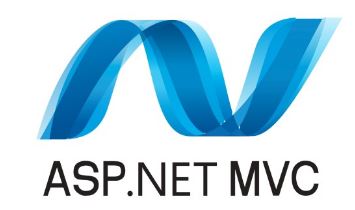ASP.NET MVC

ASP.NET MVC is a web application framework developed by Microsoft that implements the model–view–controller (MVC) pattern. It is no longer in active development. It is open-source software, apart from the ASP.NET Web Forms component, which is proprietary.
ASP.NET Core has since been released, which unified ASP.NET, ASP.NET MVC, ASP.NET Web API, and ASP.NET Web Pages (a platform using only Razor pages).

Lectures: 24
Duration: 10 weeks
Categories: Programming, Technology
Convergent Learning Solutions in noida is the only institute providing the best .NET training in noida. They have top experienced industrial professionals as their trainers, they are working in top rated MNCs and Corporates with years of real time experience. So they will surely boost you to become the best .NET developer.
The practical sessions throughout the course will help you to enhance your technical skills and confidence. Their connections to the job world will surely help you achieve your dream job. So start putting your sincere efforts into practice and grab the wonderful opportunities.
• What is .NET?
• What is the CLR?
• The FCL
• Primitive Types
• Namespaces
• Statements and Expressions
• Operators
• Constructors
• Reference Types
• Object Oriented Programming
• Inheritance
• Access Modifiers
• Abstract Classes
• Virtual Members
• Static Classes
• Sealed Classes
• Partial Classes
• Reference Types
• Value Types
• The struct
• Testing Reference Types
• Testing Value Types
• Passing Parameters
• Strings
• Boxing
• The enum
• Defining Types
• Interfaces
• Arrays
• Assemblies
• Methods
• Method Overloading
• Fields
• Properties
• Events
• Events – Delegates
• Events – Subscribing
• Events – Publishing
• Indexers
• Operator Overloading
• Conversion Operators
• Branching
• Switching
• Looping
• Using foreach
• Jumping
• Returning and Yielding
• Throwing Exceptions
• Built-in Exceptions
• Handling Exceptions
• Chaining Catch Blocks
• Finally
• Re-throwing Exceptions
• Custom Exceptions
• Garbage Collection
• Threads
• Async
• Parallel
• Reflection
• Attributes
• Custom Attributes
• COM Interop
• PInvoke
• Why Generics?
• Building Collections Without Generics
• Generic Collections
• Generic Parameters
• Generic Constraints
• Generic Methods
• The default Keyword
• Generic Interfaces
• Generic Delegates
• Variance
• Extension Methods
• Extensions and Lambdas
• Lambdas and Funcs
• Funcs and Expressions
• Why Dynamic?
• Using Dynamic Types
• Excel Automation
• The DLR
• ExpandoObject
• DynamicObject
• Calling Ruby
• Primitive Procedural Preoccupations
• The Big Encapsulation
• Little Abstractions
• The Inheritance Check
• A Clean Interface
• Directional Dependencies
• Prime Abstraction
• A Higher Calling
• Lazy Code
• Timing and Retries
• Partial Application and Currying
• Asynch and Parallel
• Multithreding
• File I/O
• Resource management with try/finally/using
• Using XML serialization
• Introducing assembly resolution
• Deploying dependent assembly probing
• Using a config file to control probing
• ArrayList
• Hashtable
• SortedList
• Stack and Queue
• Introduction to Windows Form
• Form Controls
• User Define Controls
• Connected Architecture
• Disconnected Architecture
• Working with Transaction
• Windows Application using WPF
• Data Binding
• Data Template
• Styles
• Commands
• Web Application using ASP.NET
• ASP.NET Architecture
• Control-based Programming
• User Interface Elements
• Deployment
• Web Sites, Applications, and Virtual Directories in IIS
• ASP.NET Diagnostics and Health Monitoring
• Data Binding
• State Management
• Validation
• Caching
• IIS 6 & IIS7 URL Authorization
• Forms authentication
• Role-based authorization
• Trimming site maps with roles
• Config file encryption
• ASP.NET Membership
• Resources and Internationalization
• HTTP Pipeline
• Custom Controls
• Web Parts
• Web Services
• ASP.NET Ajax Introduction
• ASP.NET Ajax Server Controls
• ASP.NET Ajax Server Data
• ASP.NET Ajax Client-side Library
• ASP.NET Ajax Control Toolkit
• Web Application using MVC Pattern
• Razor View
• Controller
• Model
• Introducing the Entity Framework
• Code First Approach
• WCF Configuration
• Hosting WCF Services in Windows Services
• Hosting WCF Services in IIS
• Building RESTful services with WCF
• Introducing Windows Workflow Foundation
• Programming workflows in WF
• Writing custom activites in WF
- Publishing Web Applications
- Create Web Setup Project

